News & Media
DigitAll: Innovation and technology for gender equality
Opening the International Women's Day celebration, Prof Puleng LenkaBula, the Principal and Vice-Chancellor (VC) of Unisa, emphasised the importance of sustaining herstories/histories of women leaders in the university. Giving a boost to the global theme DigitAll: Innovation and Technology for Gender Equality, she encouraged the audience to pay attention to gender inequalities within digital systems.
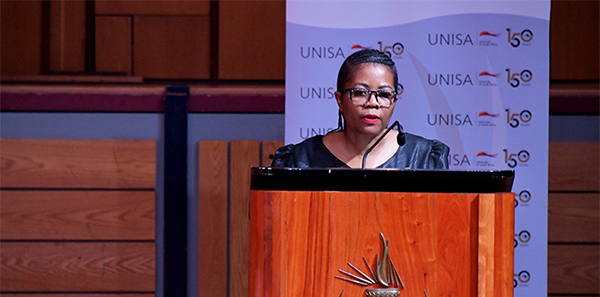
Prof Puleng LenkaBula, Principal and Vice-Chancellor of Unisa
Organised by the VC's office, the Unisa Women's Forum (UWF) and the South African Women in Dialogue (SAWID), the hybrid event took place at the ZK Matthews Hall, Muckleneuk Campus, on 8 March 2023.
LenkaBula said the university has a valuable role in ensuring that the digital systems or the development made in society should not widen gender, economic and class inequalities. She remarked that digital developments tend to widen the economic and societal gaps between the rich and the poor. "We can change these threats to transformation through education," she said. She also cautioned that Africans do not own digital systems, thereby exploring a place for women to develop gender-conscious digital systems.
Rethinking digital systems
In her address, the VC deliberated on the theme and how it resonates with the university's 150th anniversary. She encouraged Unisa women to tap into the resources and archives with valuable information on women's roles and participation at the university throughout the years. She firmly believes that ignored participation of women leads to a fading herstory.
In addition, LenkaBula urged the audience to think and rethink the place of digital systems in a gender context. "We need to ensure that digital systems do not promote gender inequality," she stated. She additionally explored cyber security and the lack of access to digital systems. Through engaged scholarship, she said: "We need to close the gaps, create employment opportunities and empower our communities."
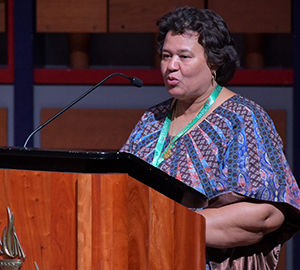
Elinor Sisulu, Executive Director of Puku Foundation and keynote speaker
Giving a keynote address, Elinor Sisulu, the Executive Director of Puku Foundation, tapped into transformation issues around digitisation. She shared about the work the foundation and Unisa have done through the university's Department of African Languages. Her address focused on the importance of literature and indigenous knowledge systems in emancipating women and girls.
She also explained the connection between her work and Unisa's decolonisation project that seeks to reclaim African languages and identities, among other efforts. "There is a reading crisis in South Africa," she said. Sisulu emphasised the importance of reclaiming the language and identities of Africans through reading and sharing our languages on online platforms. She maintained that many challenges in the 21st century could be solved if
indigenous knowledge systems are sustained.
Not yet Uhuru!
Joining the discourse on another issue that affects women, Qhama Mati, the Deputy Chairperson of Unisa's National Student Representative, spoke boldly about the persistent gender struggles of young women. "Societies continue to be hostile to young women. If it is not femicide, it is rape or sexual harassment," she said. Mati expressed that it is disheartening that in the 21st century, young women still exchange sex for jobs. Furthermore, she stressed that young women are forced to sleep with older men to keep their jobs. "These issues are often overlooked when developing solutions," she asserted.
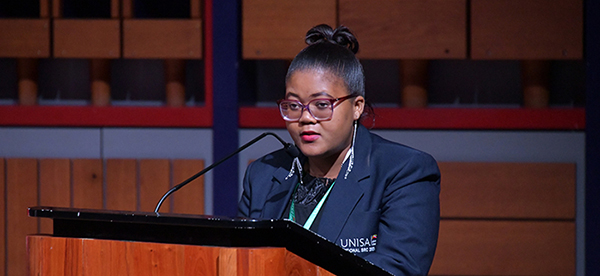
Qhama Mati, Deputy Chairperson of the NSRC
The Executive Director of SAWID, Girlie Madumezulu, agreed with Mati that women should take time to address gender disparities, especially on occasions such as women's day. She said: "The more we put women in positions of power, the more we have formidable challenges." She continued: "Nominating and appointing women is not enough; women leaders need collective support. Unfortunately, it is not yet Uhuru!"
Representing UN Women, Ayanda Mvimbi addressed the unequal pay and gender divide that increases gender inequality. She argued that the issue remains a collective challenge across the country. To achieve sustainable development goal five of gender equality, she stressed a need to work hard to shift the gender paradigm.
From songs to a flag parade and profound presentations from women leaders, the Unisa International Women's Day celebration was colourful and festive.
*By Lesego Chiloane-Ravhudzulo, Journalist, Department of Institutional Advancement
Publish date: 2023-03-10 00:00:00.0

 Inhlanyelo Hub explores sustainable tourism initiatives in Marico Biosphere Reserve
Inhlanyelo Hub explores sustainable tourism initiatives in Marico Biosphere Reserve
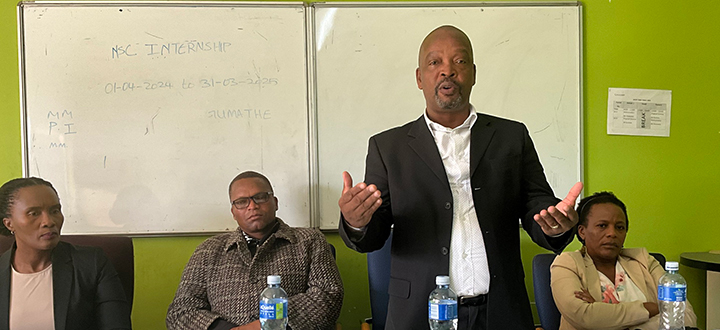 Unisa KZN Region explores extending university services to KwaMpungose community
Unisa KZN Region explores extending university services to KwaMpungose community
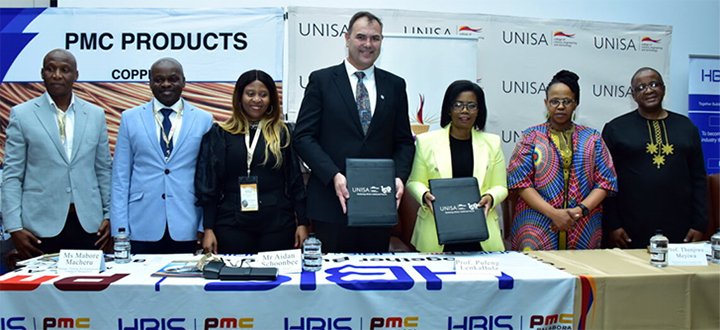 Unisa's catalytic niche areas provide industry-focused mining innovations
Unisa's catalytic niche areas provide industry-focused mining innovations
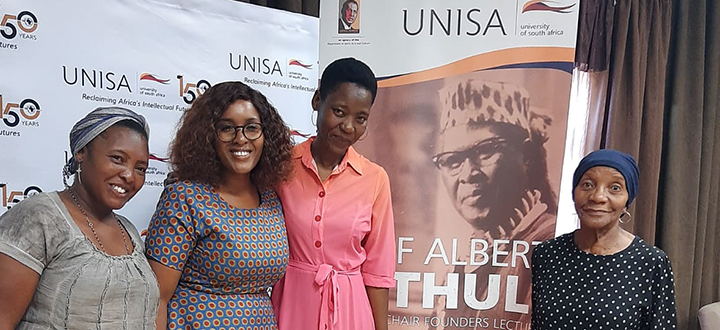 When the Village Sleeps: A conversation with Dr Sindiwe Magona
When the Village Sleeps: A conversation with Dr Sindiwe Magona